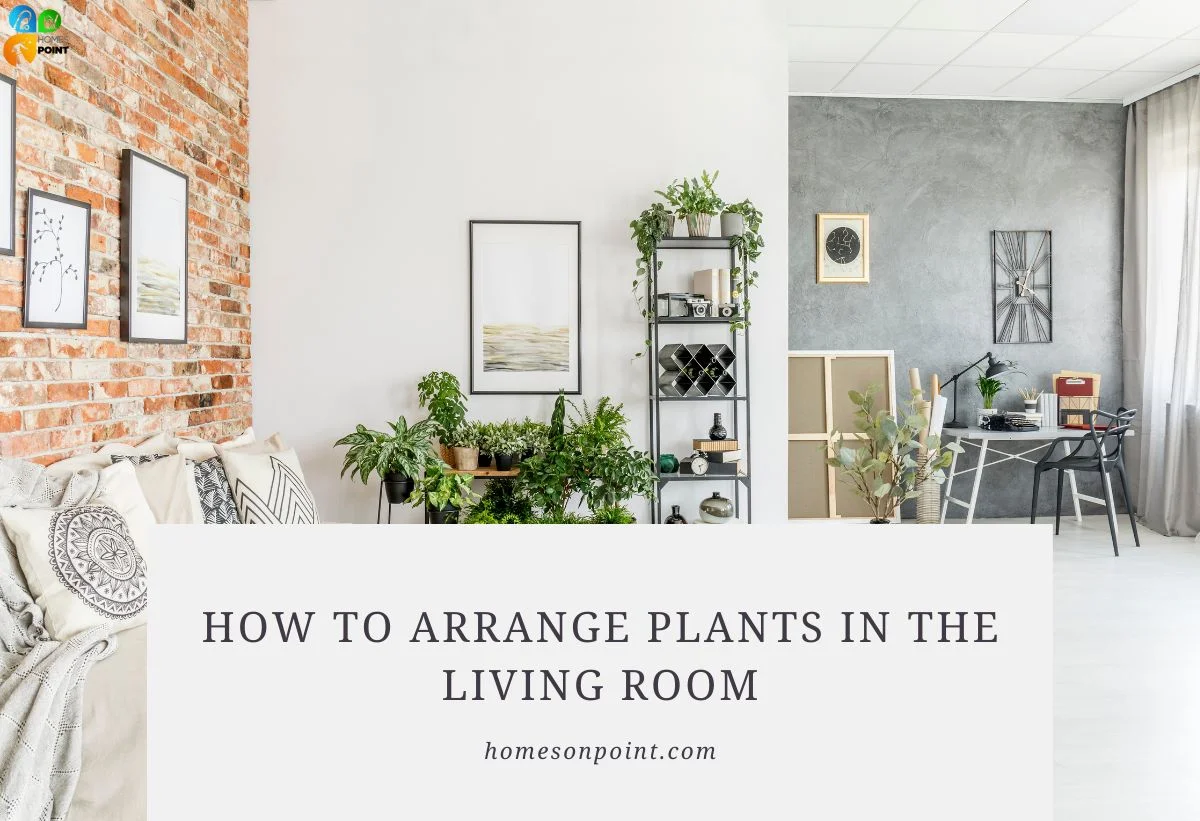Indoor plants are becoming increasingly popular in many households. Apart from being visually appealing, plants add freshness to your interior décor.
Mythology and research have it that some plants drive away evil spirits and suck out some viruses from the atmosphere. That is why some people choose to keep indoor plants. Plants in the living room enhance the mood by making it feel more relaxing. Also, plants increase the humidity level in the living room, which is excellent during the winter or dry season.
Do you want to add some greenery to your living room but don’t know where to start? In this blog post, we’ll show you how to arrange plants in your living room in a stylish and functional way.
We’ll cover everything from choosing the right plants for your space to arranging them to create visual interest. So whether you’re a plant newbie or a seasoned pro, read on for our tips on arranging plants in your living room like a pro.
Understanding The Living Room Environment
Because plants have a way of brightening up the living room, many people consider adding them to their interior décor. However, before you do, make sure to assess your living room and be sure if the plants will fit in.
a. Considering Lighting Conditions (Natural And Artificial)
Plants need light to thrive, so adequate lighting is paramount if you intend to have plants in your living room. Once you assess how much natural and artificial light your living room gets at any given time, you can decide which plants suit the environment. Different plants have different lighting needs, so it pays to seek expert advice about which plants to get.
b. Evaluating Temperature And Humidity Levels
Other conditions needed for plants to survive are temperature and humidity levels, which are dictated by how airy your room is, artificial factors to regulate temperatures, and the climate.
With the wrong living room temperature, some of your plants may not be able to grow properly or may die very quickly. Thus, note your living room’s average temperature and humidity level and be advised accordingly.
c. Assessing Available Space And Furniture Layout
What you don’t want to happen is for your living room to be squished because you decided to add plants to your interior décor. The sizes of plants you can incorporate in your living room will be dictated by the size of your living room and the layout of your furniture.
With these in mind, you will know where to place your plants so they do not interfere with portions of the living room that should be meant for human and pet traffic and activity.
Selecting The Right Plants For The Living Room
This article would not have been needed if choosing plants for the living room was so easy. However, I will further simplify the process because selecting the right plants for your living room is essential.
Factors To Consider When Choosing Plants
a. Size(s) Of Plants
To create versatility and more visual appeal, vary the sizes of plants, of course, without losing sight of how much space you have available in your living room. You can choose between tall, small, and medium-sized plants. The spread of the leaves and branches of the plants also matters as you do not want it getting in the way of things and users of the living room.
b. Growth Patterns
Different plants thrive under different conditions, so you would have to identify the different growth patterns of the plants you intend to select. Also, consider the conditions available in the living room and how they can affect the growth of the plants.
c. Air-Purifying Qualities
Some plants possess the qualities of purifying the atmosphere. If you look out for this in plants in your living room, you need to buy those plants as they remove toxins and release oxygen into the air.
d. Maintenance
There is a plethora of choices when it comes to plants and specifically for your living room. Unless you have ample time on your hands, it is always advisable to choose plants that are easy to maintain. If you do not have a problem constantly caring for your indoor plants, then maintenance should not be a criterion for selecting the right plants for your living area.
e. Suitable Plant Varieties
For plant varieties, some consist of leaves, while others bloom flowers. Depending on your style and what mood you intend to create in your living room, you can choose different plant varieties. This makes for a more visually appealing space.
Creating A Plant Arrangement Plan
a. Establishing A Focal Point Or Centerpiece
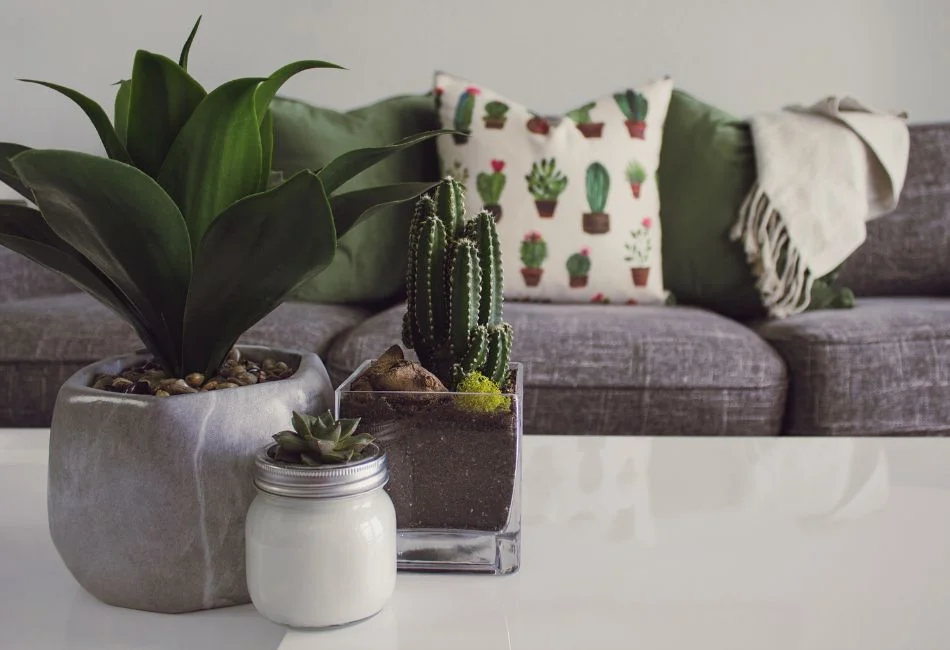
One way to draw attention to a plant or plants in your living room is to make it a focal point or centerpiece. Specific focal points in your living room could be directly opposite your entrance, in corners of the room, by the television stand, or by a blank wall. You can also place a small plant in the middle if you have a center table.
b. Balancing Heights And Sizes Of Plants For Visual Interest
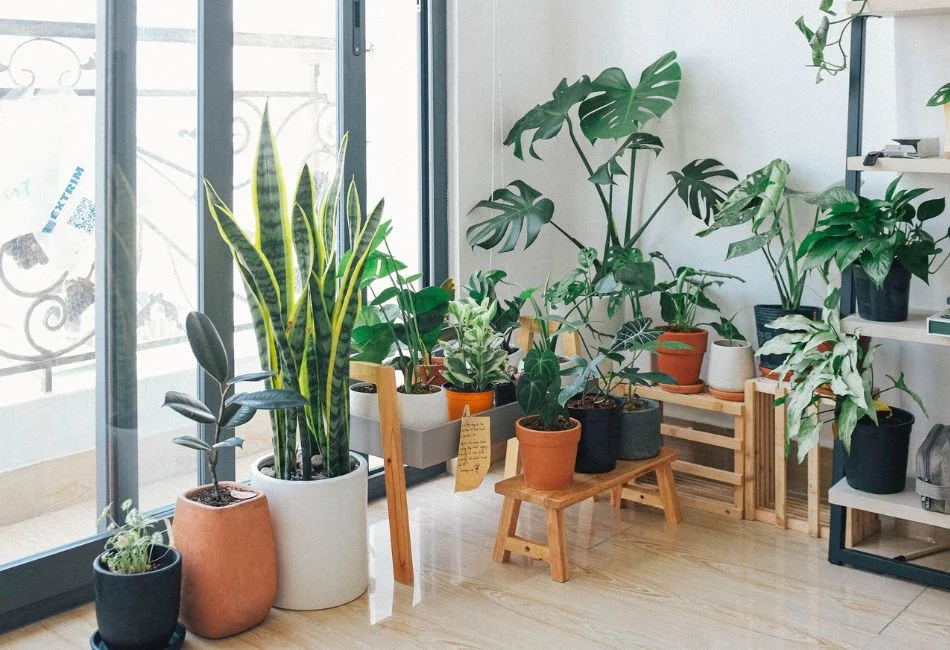
Choosing plants of different heights and sizes does not mean you must group them according to their similar sizes. Mix the different heights and sizes to achieve balance in your living room and create a more visually appealing scene.
c. Grouping Plants With Similar Care Requirements
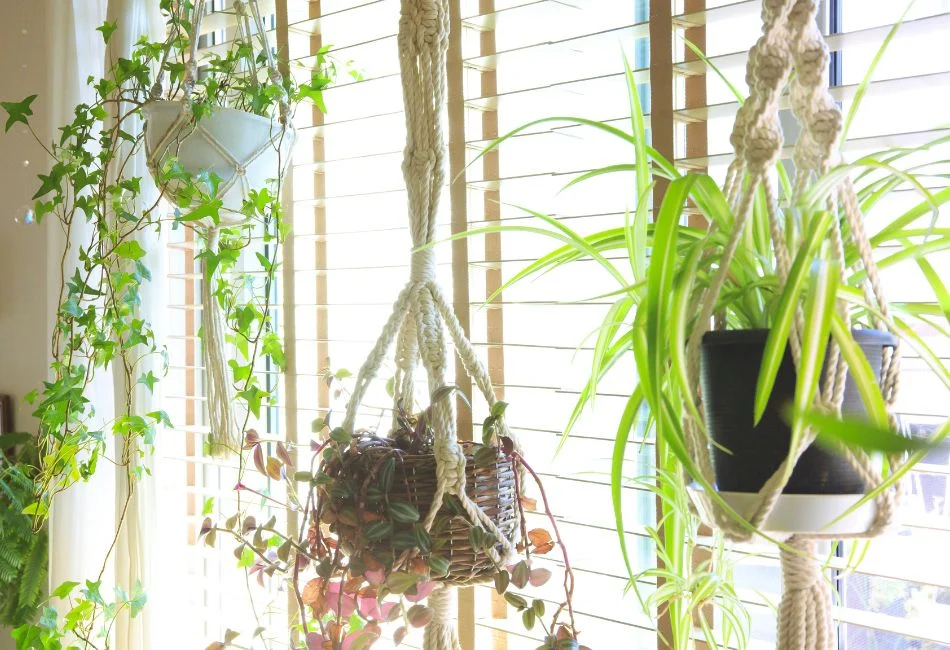
Contrary to the size recommendations, it is advisable to group plants in the living room according to their care requirements. While some plants require small sprays of water each morning, others need about a cup to stay fresh-looking. Thus, grouping plants that require similar nurturing makes things easier.
In the same way, some plants require lots of sunlight than others. This should inform you about placing them in the living room for controlled sunlight.
d. Mixing Plant Types For Variety
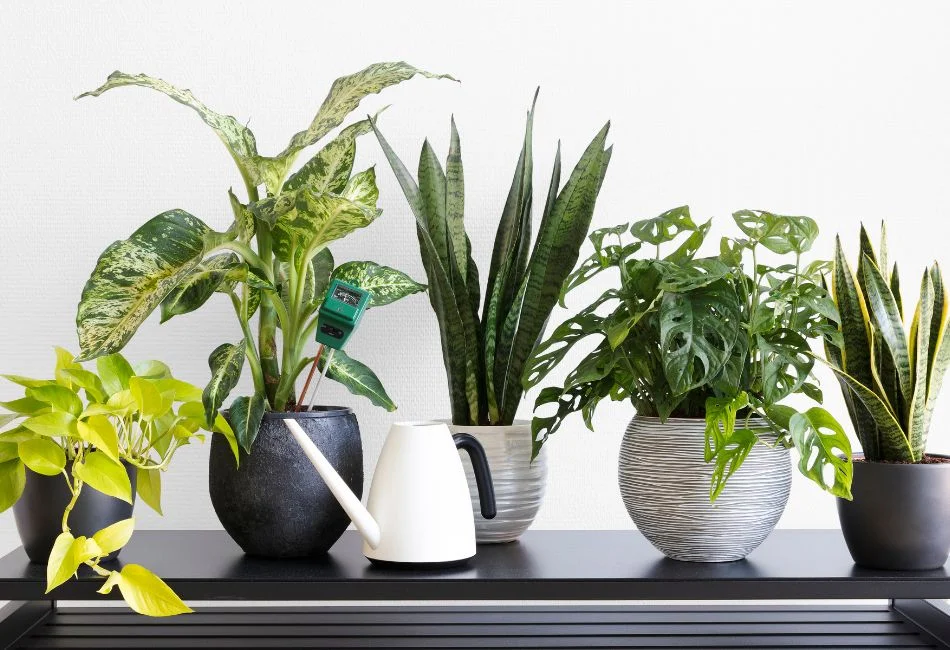
Do not stick to one type of plant or similar plants for variety. Mix potted, hanging, and tabletop plants to avoid monotony in the living room. Apart from creating a balance, a mixture of different types of plants makes your living room look more versatile.
e. Incorporating Different Textures And Leaf Shapes For A Dynamic Display
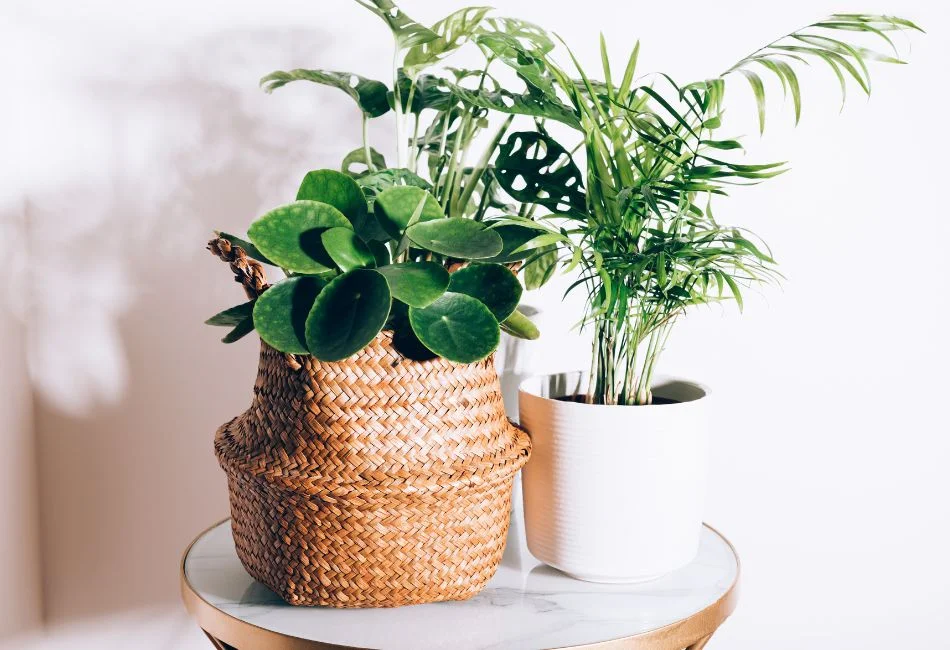
It would be great to mix different textures and leaf shapes of plants for your living room space. The diversity makes your area more exciting and not dull.
Placement and Placement Strategies
a. Utilizing Floor Space Effectively
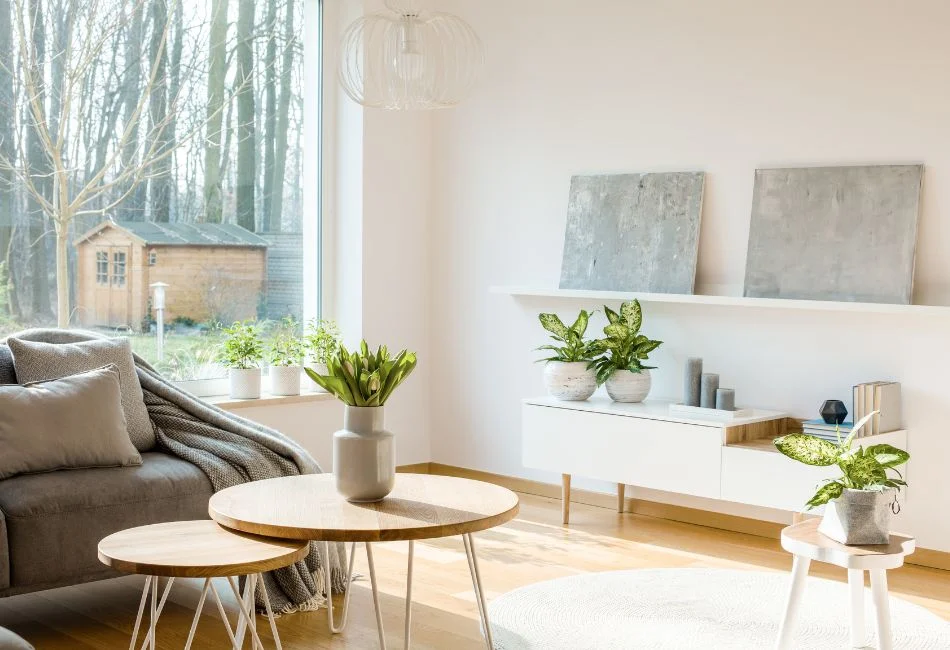
As I mentioned earlier, you cannot haphazardly place the plants in your living room. Considering how your furniture and other elements on your living room floor have been arranged, effectively use the remaining floor space for your plants, ensuring they are not obstructing any object or human movement.
b. Maximizing Vertical Space
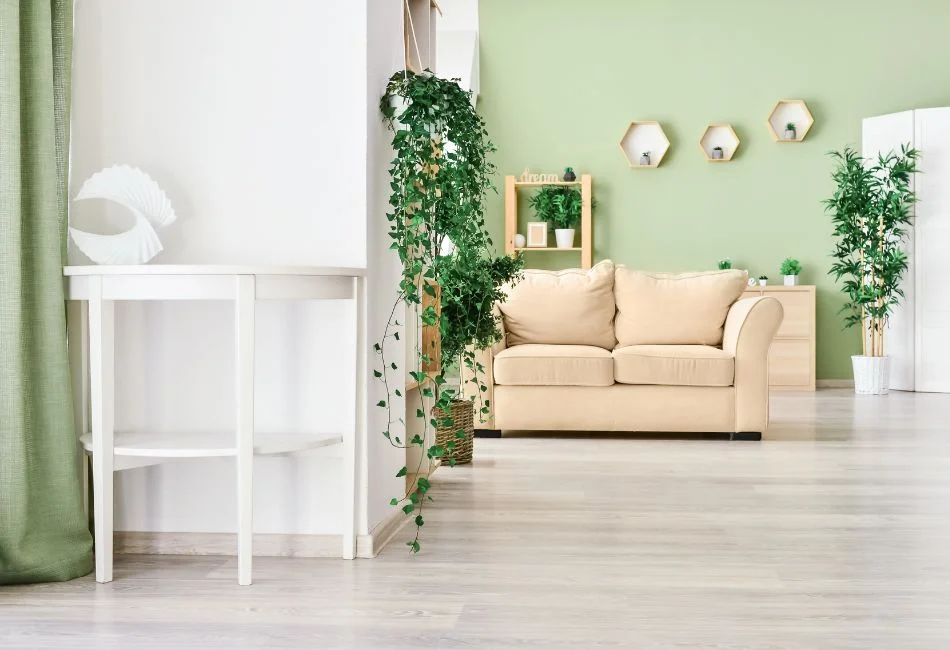
Your living room floor is not the only space that can house plants. Your walls can also be used to display plants. You can use shelves, plant stands, and other wall-mounted options like hooks to display plants in your living room. If you do not have enough floor space, your living room vertical space can be excellent.
c. Considering Corner Placements And Utilizing Empty Nooks
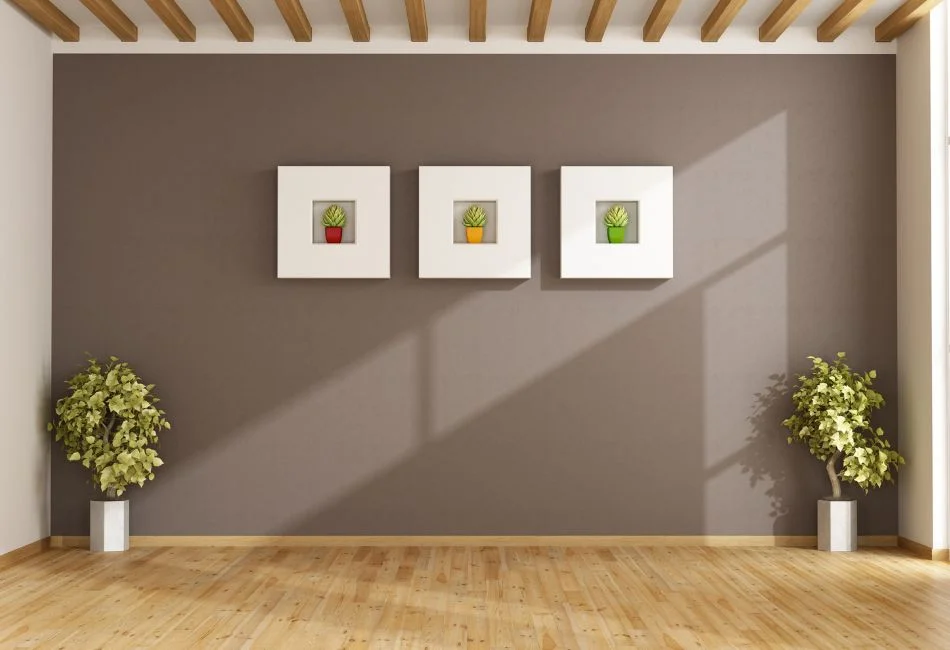
Do not neglect the corners and nooks when placing plants in your living room. The right placements can beautify those empty corners and even hide inevitable dents or design flaws.
d. Mixing Plants With Other Decorative Elements
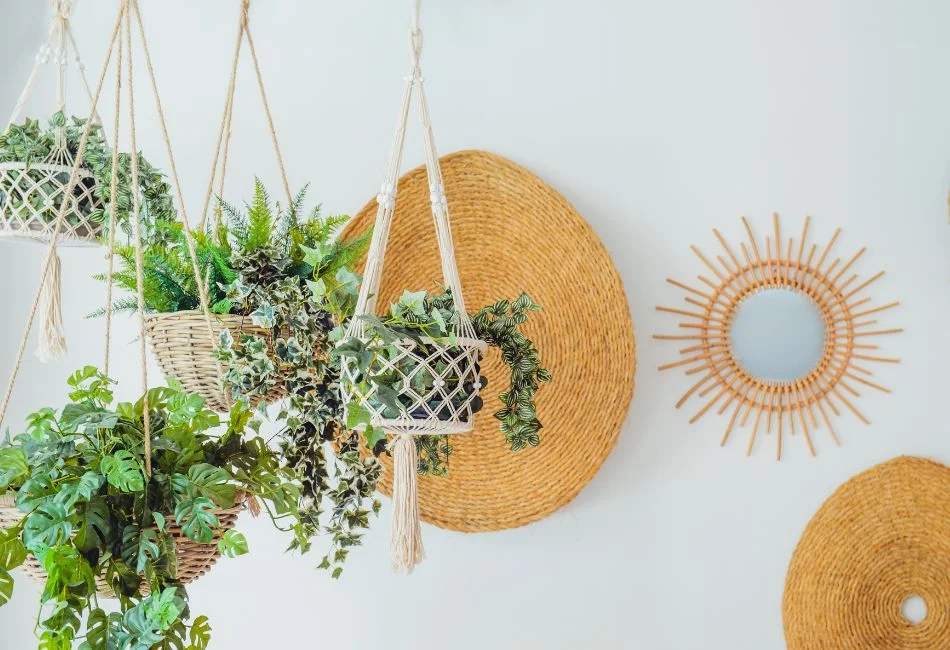
For a cohesive look, do not neglect other decorative elements in your living room and how they blend in with the plants. You can incorporate art, mirrors, clocks, and antique pieces to elevate your living room further. Apart from giving off a versatile vibe, including other decorative elements besides plants will ensure your space looks balanced.
Conclusion
Including plants in your living room décor adds some freshness and versatility. Plants are beautiful and can purify the air we breathe in the living room. The arrangement of these plants in your living room should not follow rigid guidelines. Just make sure to vary the types of plants and place them so they do not get in the way of humans, pets, and other things in the living room.

